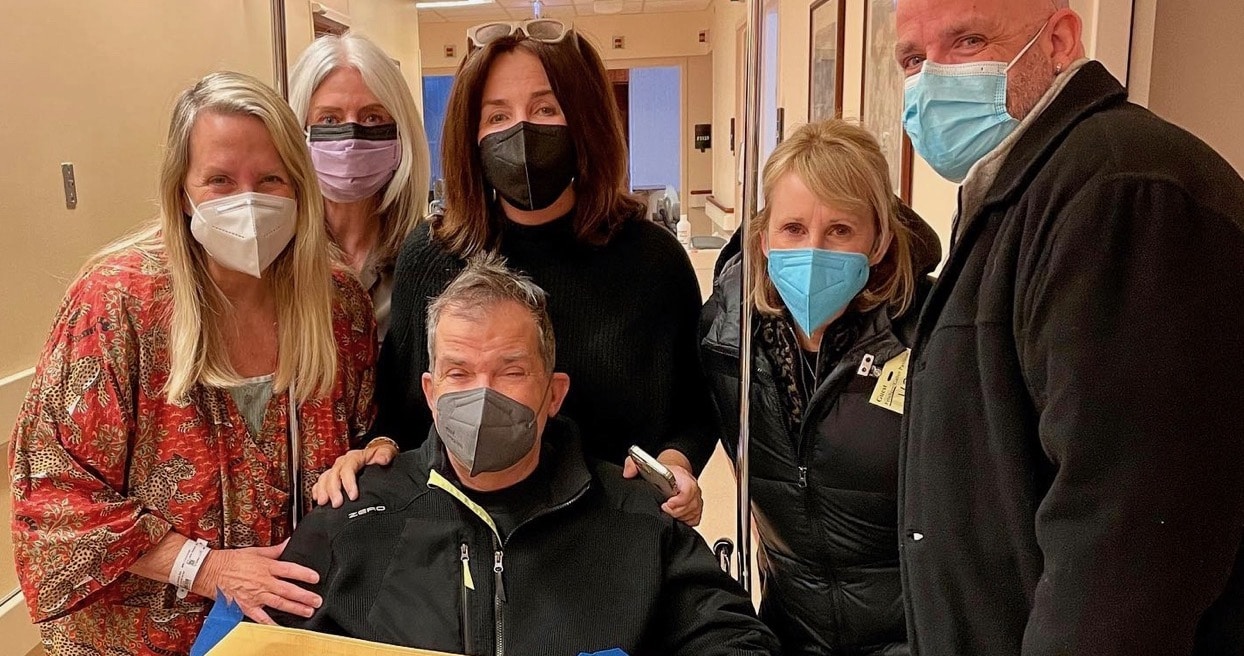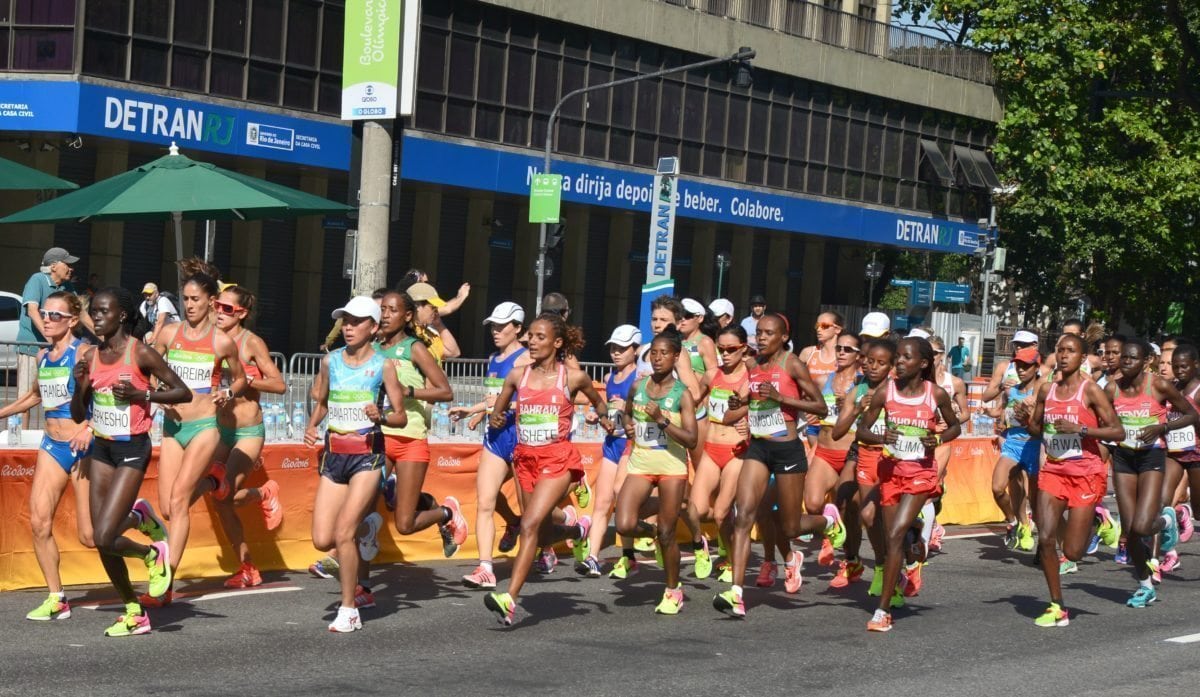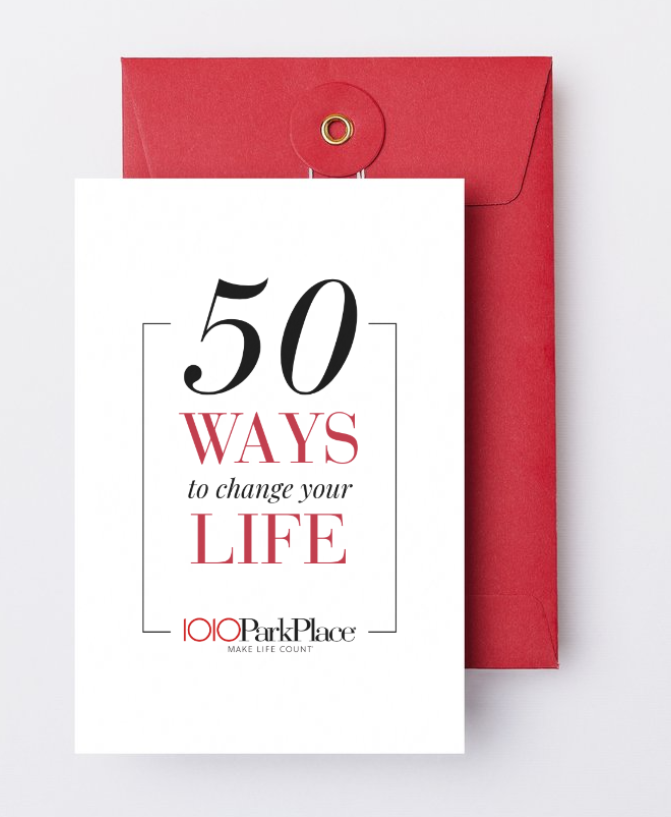Most of us have experienced depression from time to time, but did you know the worst thing we can do about it is to do nothing? If you’re like me, perhaps you’ve had situational depression that resolved itself when the circumstances that caused it were resolved. Or like me, if you’ve also had a longer, more severe depression that blankets you in a dark shroud, you may decide that like your less severe depression this, too, shall pass. But what if it doesn’t? I don’t know if this is a medical term, but sometimes I’ve thought of myself as functionally depressed.
In other words I show up for life and get my “to do” lists accomplished, but it can be a struggle.
More than 40 million Americans are living with the effects of major depression, bipolar depression, anxiety-disorders and schizophrenia. And more than 70 percent of people suffering from depression have not received any kind of treatment… which is what makes depression so dangerous.
Depression and other mental health issues are nothing to be ashamed about. Doing nothing about them is what’s shameful.
Women with depression often suffer in silence, self-medicating with alcohol and/or prescription drugs. While alcohol delivers an initial high and temporarily lifts the weight of their problems, the depressant effects of alcohol will bring them down, making their depression worse.
I watched my first husband become addicted to an endless supply of cocaine and then copious quantities of vodka with a chaser of valium to cope with his depression. His often violent Jekyll and Hyde personality swings were terrifying. After watching this brilliant man self-destruct, I developed a healthy respect—actually more of a fear—of drugs of any kind. I’m also severely allergic to a large percentage of prescription meds, and two drinks give me a hangover. Since I’m not a candidate to abuse drugs and alcohol, and I’m afraid of trying antidepressants, I’ve had to seek other methods to deal with my depression.
After my second husband, James, died I sunk into an all-consuming quicksand of depression that scared me. While I didn’t think I’d harm myself, I couldn’t bear the thought of living day after day with such feelings of despondency.
I saw my family physician and a therapist. Both knew of my allergies and my fear of drugs. When I suggested I listen to Guided Imagery audios for my depression, they gave me their short-term permission with the promise if it wasn’t working, I would contact them immediately, and we would look into antidepressants.
NOTE: I am not recommending Guided Imagery instead of taking antidepressants. I’m just telling you my story. I am, however, strongly urging you to get help to alleviate your depression.
I’d had lots of practice with Guided Imagery, and I already knew it worked. Since my late 30’s I’ve used Guided Imagery to cope with my first husband, his cancer and death, the boyfriend from Hell, my breast cancer and getting over the punk who stalked me at high speeds down eight miles of a dark, twisty, country road.
Dr. Andrew Weil describes Guided Imagery as a “traditional mind-body technique that is also considered a form of hypnosis.” It offers visualization—or “guided imagery”—to relieve pain, assist with healing, insomnia, anxiety, depression and prepare for surgery. I’ve used Guided Imagery, successfully, for all of these things.
The best and most well-respected of the Guided Imagery audios are by Belleruth Naparstek, a former social worker and former teacher at Case Western Reserve University. She is considered the “founder” of Guided Imagery. Her PTSD audios are used by the U.S. Armed Services and the Veterans Administration where they’ve achieved amazing results. If you’re interested in Guided Imagery, please take a look at her site, HealthJourneys.com and read the stories of the people she’s helped.
To help my depression after James died, I listened—a lot—to Naparstek’s audio “Guided Meditation to Ease Grief” and her “Meditation to Help You Relieve Depression.” As long as I listened to it on a regular basis, my depression lightened to the point I didn’t think about it. I stopped listening for a couple of years, and I became depressed, again. Since January of this year, most mornings I’ve listened to her “Affirmations to Help You Relieve Depression” on my iPad while I’m doing my makeup and getting dressed. You can download all of her audios onto your mobile devices. It’s changed my outlook and my life. I will say, if I go for a week and don’t listen, I find myself backsliding into my depression, so for me, Belleruth Naparstek’s audios are my daily antidepressant.
An interesting side note… Every day Annie and Lulu, my 17-month-old puppies, stop chasing one another and sit side-by-side on the end of my bed while I’m playing Belleruth’s audio.
Next week I’m interviewing Belleruth Naparstek. Because I’ve listened to her voice for so long, I feel like she’s an old friend. I’m excited to get to know her and will tell you all about it. In the meantime, IF YOU ARE FEELING DEPRESSED, DESPONDENT OR THINKING ABOUT SUICIDE, call your doctor, a church in your neighborhood or the National Suicide Prevention Lifeline at 1-800-273-TALK (8255).










41 thoughts on “COPING WITH DEPRESSION”
How fascinating. I’ve never heard of this before. I have the perfect person to recommend this to. I will look into some of the other tapes. Wonderful help to present to people. You always write about the best stuff!!!! You have so much to offer people.
Hi Sandra, I could have sworn I answered you, but I don’t see it. I’d appreciate it if you’d pass along anything you find here to someone who might benefit from what I write or who might enjoy it. Thank you, sweet lady!! xoxo, Brenda
very good. Thank you for sharing!
You’re welcome, gmail sign in! I appreciate you for reading and taking the time to let me know, Brenda
Perfect timing! Thank you.
Hi Lucy! I’m happy this post came at a good time for you! Thanks for letting me know. xoxox, Brenda
I’m sorry you have to deal with depression, and I’m so grateful you’ve found what works consistently for you!
What a wonderful opportunity to interview Belleruth!!! Can’t wait to read it.
I too have felt depressed while recovering, and while dealing with care-giving… my go-to is Yoga Nidra. I can always find 30 minutes, and always feel better afterwards!
Love you, Brenda.
XO
Donna… Everyone I follow on social media is going to a yoga retreat. First, I need to make sure my back continues to be more flexible. Wouldn’t it be terrible to go to a retreat and be like a wooden stick? I talked to Belleruth this week! She’s everything and more I hoped she’d be!!!! Sending my Love, Brenda
I am so pleased I found your Blog. I have no doubt that the greater realms guided me to you and your incredible gift of writing about life, love and loss.
Your words and observations are so on point.
Thank you Brenda. Thank you for your rawness, your honesty, your connection to life. You truly are a gift to this world
Dearest Jeanette, What a sweet thing to say. I’m grateful that my writing and my thoughts resonate with you and are of some help and comfort. It’s so humbling and gratifying to hear this so I send you my heartfelt thank you, Brenda
Depression, whatever its form, needs to be addressed. Thank you for this post.
Dear Donna, Depression is an awful thing that’s so misunderstood. I thank you for leaving me a comment. I appreciate it. Brenda
Thank you for your honesty and openness and providing a source for guided imagery. I’ve thought about using it for chronic pain and will definitely look into using it. Since finding your blog you’ve been an amazing source of inspire and information.
Hi Donna, I’m happy you find inspiration and information here on my blog. That’s why I write! Even before I tried Guided Imagery, I did self-hypnosis with a trusted, counselor who was skilled at hypnosis. Guided Imagery is a form of hypnosis, and if you can lay down and clear your mind of other things, you’ll be more receptive to the audios. I always do Dr. Andrew Weil’s breath work before I play the audio. I close my eyes and put one hand on my upper abdomen/stomach, and the other hand on my lower abdomen. Breath in for 4 counts; hold for 7 and exhale for 8. Repeat three of four times. Hoping this helps you, Brenda
Thank you for your open and honest story and for the product recommendation. I have a child with panic disorder and depression. Medication isn’t helping. Maybe this guided imagery will.
Leah, Check Belleruth Naparstek’s site specifically for Panic Attack audios, because I downloaded those a number of years ago. I’m going to copy and paste what I wrote to someone else that will help clear the mind and get ready to be more receptive to the audios. “Guided Imagery is a form of hypnosis, and if you can lay down and clear your mind of other things, you’ll be more receptive to the audios. I always do Dr. Andrew Weil’s breath work before I play the audio. I close my eyes and put one hand on my upper abdomen/stomach, and the other hand on my lower abdomen. Breath in for 4 counts; hold for 7 and exhale for 8. Repeat three of four times.” I hope this helps your child, Brenda
I am looking forward to your interview. I totally believe in subliminal messages. Though I listened to her samples online I am very interested in knowing more. I could not function without Cymbalta. I wish these meds had existed when I was younger ; they really are life altering in a good way.
Marsha, I’m so happy to hear a positive story about antidepressants. Someone told me, yesterday, there’s now a blood test that can check for a specific protein in your blood that helps determine which antidepressant to take as opposed to the hit and miss approach. That and my allergies have deterred me. I’m looking forward to sharing my conversation with Belleruth Naparstek as well. Also I should share the specific ways Guided Imagery has helped me. I hope you continue to do well. Brenda
Actually, my Psychiatric Nurse Practitioner told me about it yesterday and it was the first time I had heard of it. She said it’s a DNA test: They swab the inside of your cheek, analyze your DNA and then there will be a list of helpful medications as well as ones you should avoid. She said it has been done for awhile, but it was new to me!
I had never heard of this! Thank you for sharing!
You’re welcome, Diane! Thanks so much for leaving me a message, Brenda
Having dealt with chronic depression for the past thirty five years (and existing with it w/out treatment for years prior since adolescence) I found this post interesting— and a bit confusing. There is such stigmatic shame about true, deep depression and this post inadvertently reinforces it. You talk about how important it is to recognize depression as an illness that must be treated, and then you talk about fear of drugs to treat this MEDICAL condition. I’m happy you’ve found sufficient relief with bellaruth guided imagery ( I find them useful, as well). It does feel like you’re diminishing the need and purpose of medication for those of us with chronic depression. Unfortunately, the stigma continues — am I weak because I have needed a small dose of sertraline for most of my adult life in order to be that person with “functional depression” who can then thrive with other self-care like meditation, exercise, and guided imagery? The shame of needing drugs for my depression (an actual medical condition) has led me to wean of medication a few times over the years, only to recognize their necessity to get out of bed and eat and sleep. I’m sure you’re not intending to imply that, but that’s the impact, anyway. Would you have eschewed mediation in lieu of guided imagery to treat your cancer? The acceptance level needs to be for BOTH treatments as needed without even unintentional judgement!
Hi Mary, Please reread my post. In big red letters I said, “DEPRESSION AND OTHER MENTAL HEALTH ISSUES ARE NOTHING TO BE ASHAMED ABOUT. DOING NOTHING ABOUT THEM IS WHAT’S SHAMEFUL.” I also tried to make it clear THE ONLY REASON I don’t take antidepressants is because I’m allergic to most everything–including chemotherapy… but that’s another post. Therefore my doctor’s and I are overly cautious, especially since I live alone and there’s no one here should I have a life-threatening problem. My physical reaction to even the simplest medications, both prescription and over-the-counter, even things you rub on your skin, have left me overly cautious… wanting to try other alternatives before I try medication. Again, in big, red letters in my post I said… “NOTE: I AM NOT RECOMMENDING GUIDED IMAGERY INSTEAD OF TAKING ANTIDEPRESSANTS. I’M JUST TELLING YOU MY STORY. I AM, HOWEVER, STRONGLY URGING YOU TO GET HELP TO ALLEVIATE YOUR DEPRESSION.” Brenda
I know people who found antidepressnts have been literally lifesavers – I also know two people in my life who became addicted to Paxil and it was a struggle to get off. I’m of the “whatever works” camp – there should be no shame in any path you choose, but people should be aware that there are possible non drug treatments that can be considered. (I didn’t find your post to be anti-drug. I am not allergic to anti depressants but, in trying them twice, found the side effects to be something I could not overcome. This doesn’t mean the drugs have great value for others.) What has to be fought is the stigma that a person with depression is weak, or just hasn’t “tried hard enough” or that mental illness really isn’t an illness, and insurance coverage for mental illness just shouldn’t be the same as for a physical illness).
Thank you for your awesome comment, Alana! I agree with everything you said. If you find a medication, whether it’s for depression or diabetes, take it. There is no shame to treating depression. For so many years we used the term “mental illness” instead of “mental health.” We lumped everything together as mental illness and spoke in such derogatory terms. Depression isn’t one of those things you can “snap out of.” Neither is a broken leg or cancer. Thank you, again! xoxox, Brenda
For me, keeping my depression “in remission,” for lack of a better description, means a tried and true combination of anti-depressant, talk therapy, exercise and eating well, and perhaps one of the most important things for me…connecting with other people. When the depression hits hard, I tend to isolate myself from others, stop going to church, don’t get out of bed or get dressed and neglect self-care. I’m doing ok for now, but I’m not naive enough to think that depression will never rear its ugly head again. My youngest daughter is well aware of what this looks like for me and one day she sat down beside me, took my phone and said, “Mom, you’ve got to do the things that you know work for you. I’ve found a guided meditation app that works great to help me deal with my anxiety, and I’m going to load it onto your phone for you.” (Sometimes, you just need someone to push you a little!) It only takes 20 minutes per day and it’s called Calm. I highly recommend it.
Hi Val, Calm is on my phone as well… but I’ve only used it once. Probably because I listen to Belleruth Naparstek every morning, sometimes twice a morning, depending on when I start listening to it. In addition to taking an antidepressant, you bring up some great points like eating well, exercise and talk therapy! So valid, and often people don’t consider these as factors that can help. Growing up as an only child, it’s easy for me to be by myself. Unless I go to dinner with some girlfriends, the only time I interface with people is three days a week when I go to the gym, Sunday to church, and yes… If I’m depressed, it’s easy to stay home from church. One of my girlfriends and I text each other every Sunday morning. One of will text “Church?” and the other will text back yes or no and why not. Often we’re that accountability factor for one another, to shower, get dressed and GO! I love both of your daughters!! So smart and wise… just like you! xoxo, Brenda
Accountability to a friend or spouse is really key to keeping you on the right track, I believe. I really look forward to your interview with Belleruth! (3 daughters – all wise! 😉 )
Three daughters!!! Woah! I thought you had two. It gives me comfort to know you and your husband’s genes are out there, doing great things in the world. xoxo, B
I have gone through depression a couple of times and have used therapy and anti-depressives. I am not sure right now if I am depressed. I know this is crazy Brenda but I am not sure what format I need to download the guided imagery to my ipad. I have gone to the site you gave me a number of times but I am not tech savvy. lol
Hi Victoria, LOL! That’s not crazy at all. When you go to the link I provided it will ask you to “choose a format.” Do you want a CD or an MP3? You know what CDs are, you can pop them into a CD player or your car and listen to them… wouldn’t recommend listening to Guided Imagery while you’re driving, however. You probably want the MP3 format to put on your iPad so choose MP3 and “Add to Cart.” Then look in the upper right hand corner of their website and you’ll see a little shopping cart that should have the number “1” on it, which means you’ve clicked once on that audio. If it has a higher number on the cart, you may have already added an audio the other times you tried. You can edit your shopping cart and throw one, or all of them away, in which case you can start over. Once you have what you want in your shopping cart, you can checkout as a new customer or create a new account. Then after you’ve plugged your payment info in, it should have a place for you to click on “download.” I haven’t downloaded anything from their site recently, so I don’t remember, but it should be rather straight forward. That file should save to iTunes on your iPad. That’s where mine is. Then click on iTunes (the musical note symbol). At the top it will say Library, For You, Browse, Radio, Store. Click on Library and then where the Search window is in the upper right hand corner of the iTunes page, type in Belleruth Naparstek, and it should begin playing for you. Controls and volume are in the upper left of that window. Let me know if this doesn’t work for you. Also… down the left hand side of your iTunes window, you might have “Purchased” listed. It will be in there. xoxox, Brenda
Brenda thank you so much.
Victoria, If you’re still having problems perhaps we can jump on a call and I can walk you through it. Let me know, Brenda
YOU ARE ALWAYS A SOURCE OF INFORMATION!!!!!!!
BRAVA TO YOU FOR SHARING………………..XX
Thank you my DARLING CONTESSA!! I appreciate that. LOL!… Does everyone answer you in ALL CAPS? xoxox, Brenda
Great post, friend! Thank you for your honesty and for sharing what has helped (especially without medication!). Looking forward to the interview!
Hi Beckye, I talked with Belleruth Naparstek this week! I would know that voice anywhere, and she’s magnificent! She’s zoomed to the top of my list of wonderful women of a certain age I admire! xoxox, Brenda
Brenda,
I had to come back again and reread your post because I read wonderful comments from your followers who are also sharing their journeys with symptoms of depression or know someone who is suffering from depression.
Bravo for wearing your truth and sharing your journey!
I do not suffer from depression but I am noticing many women who are speaking up about their emotional health and some who are following me who are in desperate need of help whether, through therapy, medication, or whatever means to right themselves.
I have recommended to them to seek help but always wonder if they have found the courage to put one foot in front of the other.
Hugs always,
Robin
Hi Robin, Thanks for returning… When depression swoops down and swallows you whole, mind body and soul, it’s nearly impossible to put one foot in front of the other. I’ve endured a lot of unthinkable things in my life and managed to keep moving forward, as though they’d never happened. I’ve always been the happiest, most well adjusted, most low maintenance person in the room, but the unexpected, Christmas death of my darling James… and the subsequent fear of his son and the loss of his family…. There are no words… For the better part of the last seven years, it’s been like falling from a thousand story building, knowing.. the entire time… there was nothing I could do to turn the clock back. I’ve survived things you can’t imagine, but this was different. Guided Imagery and the sound of Belleruth Naparstek’s voice slowed my fall. It allowed me to gather together all of the parts of me that had already left my body. That’s the only way I know to describe it. I spoke with her this week, and she’s everything… and more… I hoped she would be. I’m excited to introduce her to everyone next week. xoxox, Brenda
Thank you for bringing up the topic of depression and being so open and honest. I’ve been dealing with depression since peri-menopause and I’ve been told by my doctors that it is a common occurrence due to the hormonal change that we start to go through at that time. We shouldn’t be ashamed of feeling depressed, ever, but understanding more about how to live through it is what more women need to know and talk about. Bravo to you for starting this conversation and sharing your information about guided imagery, a truly wonderful resource.
Hi Christine, I’m sorry you know what depression is like. Hormonal and life style changes at this age can trigger depression, but the “hit and miss” approach of finding the right med AND the side effects doesn’t appeal to me. I learned from one of my readers doctors can now administer a blood test to narrow down the kind of anti depression meds you should try… That doesn’t negate any side effects, however. This Saturday, August 25th, I’ll be writing about my conversation with Belleruth Naparstek, the founder of Guided Imagery. What a great time I had, talking with her. I hope you’ll enjoy it. Thank you!! Brenda
Comments are closed.